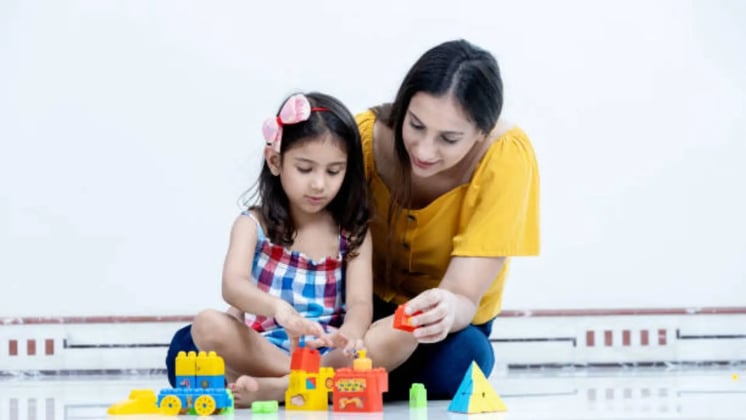- Strengthens Problem-Solving Skills
- Improves Memory and Retention
- Encourages Focus and Attention
- Builds Mathematical and Logical Thinking
- Enhances Language and Communication Skills
- Promotes Teamwork and Social Learning
- Boosts Confidence Through Achievement
Introduction
Learning looks very different today, and that’s a good thing. For kids growing up in a digital age, interactive educational games are turning lessons into experiences, not tasks. They get kids to think, explore and solve problems while having fun, so learning feels like play, not pressure. These games are designed to build essential skills while nurturing curiosity, focus and creativity.

Whether it’s math puzzles, science experiments or language through storytelling games, interactive learning keeps kids engaged in a way textbooks can’t. The mix of visuals, sounds and hands-on activities helps concepts stick longer and kids get a deeper understanding of what they’re learning. This kind of active participation builds confidence, especially for kids who might struggle in traditional classroom settings.
Beyond academics these games encourage teamwork, patience and critical thinking, all essential skills for lifelong learning. Parents can see the benefits too: improved concentration, quicker problem solving and a genuine enthusiasm for learning. With the right balance of screen time and supervision, interactive educational games can turn study hours into exciting adventures of growth, knowledge and self-discovery.
7 Ways How Interactive Educational Games Improve Kids Academic Skills

For today’s generation of learners, screens can become tools for learning and creativity. Interactive educational games blend entertainment with education, helping children grasp academic concepts in ways that feel exciting and rewarding. These games invite children to think, imagine, and apply what they learn rather than simply memorize facts.
What makes them truly powerful is their ability to adapt to each child’s pace. A math problem, a spelling challenge, or a geography puzzle transforms into an adventure, one that builds both confidence and curiosity. When play and purpose come together, learning becomes less about performance and more about discovery.
Here are seven ways interactive educational games can strengthen your child’s academic skills while keeping learning joyful and engaging.
Strengthens Problem-Solving Skills
Interactive games often present challenges that require children to think critically and find solutions. According to a study published in Children (Basel). 2024, whether it’s cracking a code, balancing equations, or planning strategies, each task improves reasoning and decision-making. Over time, children learn to approach real-world academic problems with the same calm and confidence they develop through play.
Improves Memory and Retention
Educational games use visuals, sounds, and repetition to reinforce ideas. Matching games, vocabulary puzzles, and logic sequences help children strengthen memory while making it enjoyable. According to the National Skill Development Corporation, the more they interact with the material, the stronger the brain connections become. This kind of active learning ensures they remember concepts longer than they would from passive reading or listening.
Encourages Focus and Attention
Games naturally capture attention because they reward progress and spark curiosity. Research conducted by PLoS One. 2023 shows that children concentrate longer when they’re engaged in interactive activities that challenge them just enough without overwhelming them. Over time, this focus spills over into academics, helping kids stay attentive in class and complete homework with better concentration.
Builds Mathematical and Logical Thinking
Many educational games simplify complex math ideas through play. Counting coins in virtual stores, measuring ingredients in cooking simulations, or solving geometry puzzles make numbers relatable. Research conducted by Curr Psychol. 2023 highlights that these playful experiences strengthen logical reasoning and pattern recognition, helping children understand that math is about thinking creatively.
Enhances Language and Communication Skills
Games that involve storytelling, quizzes, or vocabulary challenges improve reading comprehension and language fluency. A study published in Cureus. 2025 shows that, kids learn new words, sentence patterns, and even pronunciation through repetition and context. Multiplayer or group-based games also teach communication encouraging children to listen, express, and collaborate effectively, skills that benefit both classroom discussions and social interactions.
Promotes Teamwork and Social Learning
Multiplayer or cooperative educational games create opportunities for teamwork. Whether children are solving puzzles as a team or working toward a shared goal, they learn to share ideas, divide responsibilities, and celebrate collective success. According to a study published in Iran J Psychiatry. 2016, this nurtures empathy, patience, and respect, essential qualities for both academic projects and everyday relationships.
Boosts Confidence Through Achievement
Interactive games offer instant feedback and small rewards for progress, helping children feel capable and motivated. Completing levels or unlocking new challenges reinforces the idea that effort leads to success. According to a study published in Front Psychol in 2024, this sense of achievement builds resilience and confidence, encouraging kids to take on new academic challenges with a positive mindset.
Conclusion

Interactive educational games have changed the way children experience learning, they make education active, exciting, and personal. By combining play with purpose, they help kids build skills that extend beyond academics, focus, communication, confidence, and problem-solving. As a parent, encouraging your child to explore such games mindfully can open doors to new ways of learning and growing. When learning feels like an adventure, knowledge becomes something they’ll chase, not something they’re told to follow.
Her love for storytelling began with reading her grandfather’s speeches, where Tarishi saw the power of words in creating lasting memories. Combining her passions for food and writing, she has turned her life into a fulfilling path of sharing stories that celebrate flavours and how food brings communities together.
The views expressed are that of the expert alone.
The information provided in this content is for informational purposes only and should not be considered a substitute for professional medical advice, diagnosis, or treatment. Always seek the advice of your physician or another qualified healthcare provider before making any significant changes to your diet, exercise, or medication routines. This is a sponsored article.
References
https://pmc.ncbi.nlm.nih.gov/articles/PMC11592547/
https://nsdcindia.org/communication-advocacy
https://pmc.ncbi.nlm.nih.gov/articles/PMC9775149/
https://pmc.ncbi.nlm.nih.gov/articles/PMC10699610/
https://pmc.ncbi.nlm.nih.gov/articles/PMC10132955/
https://pmc.ncbi.nlm.nih.gov/articles/PMC12260253/
















